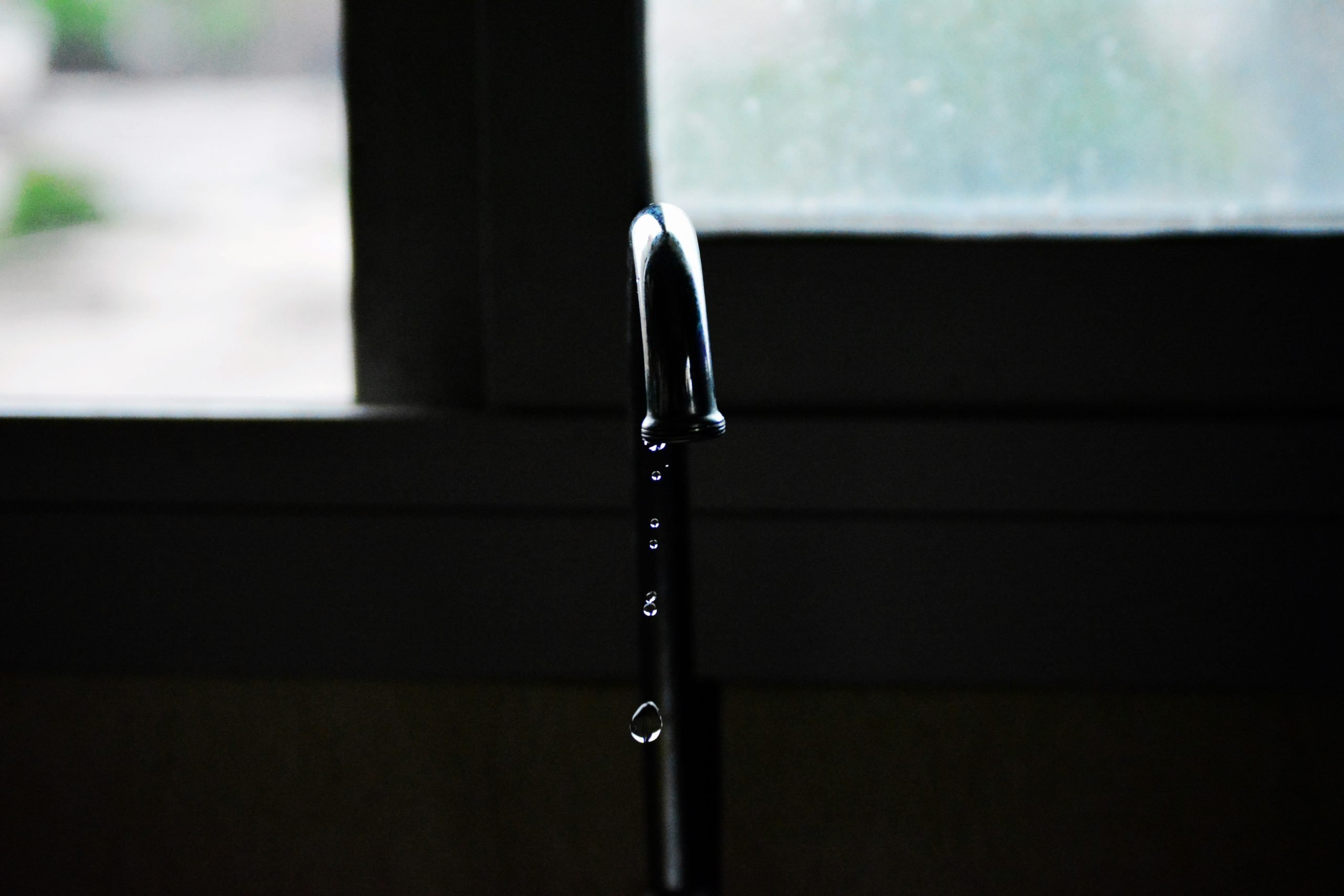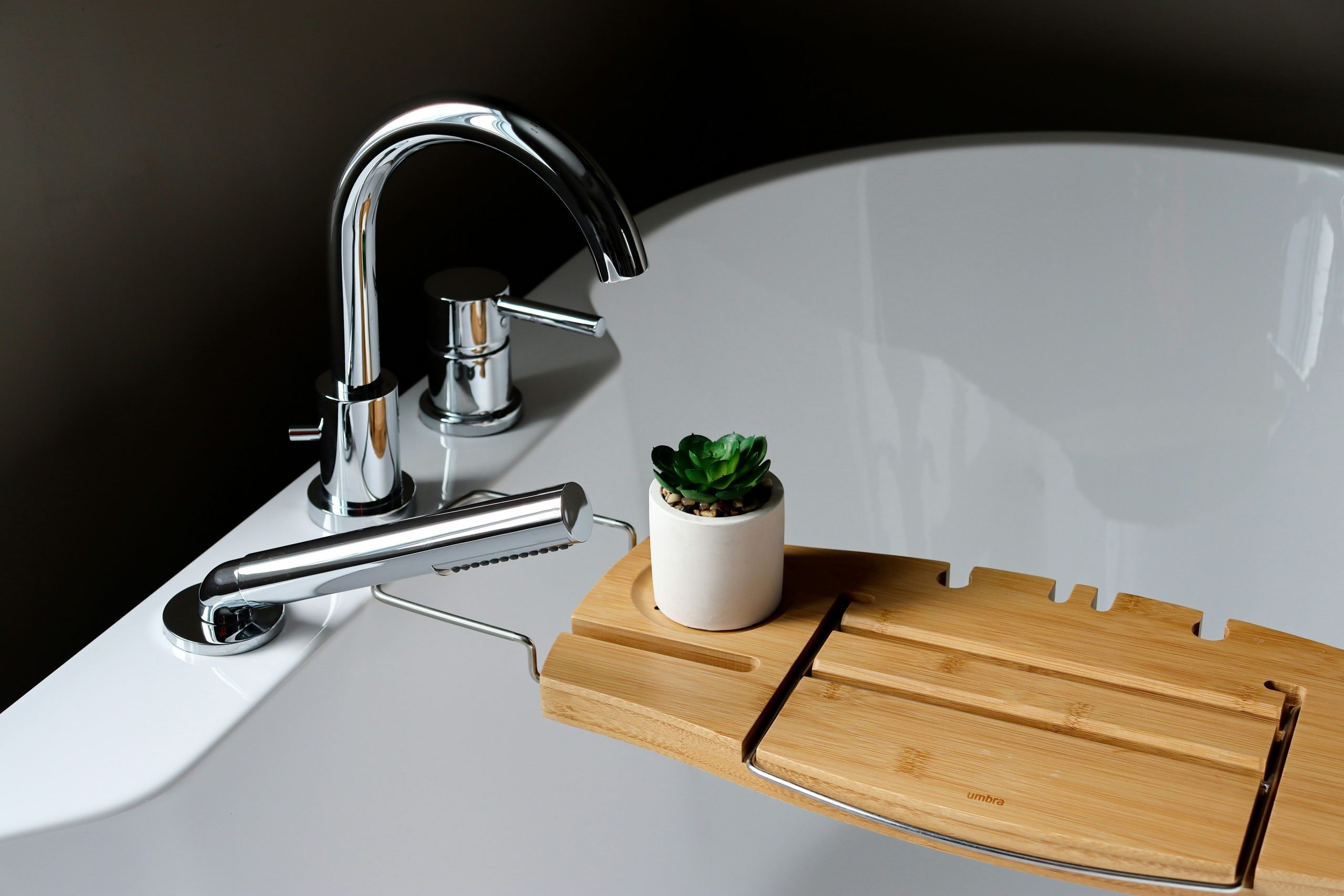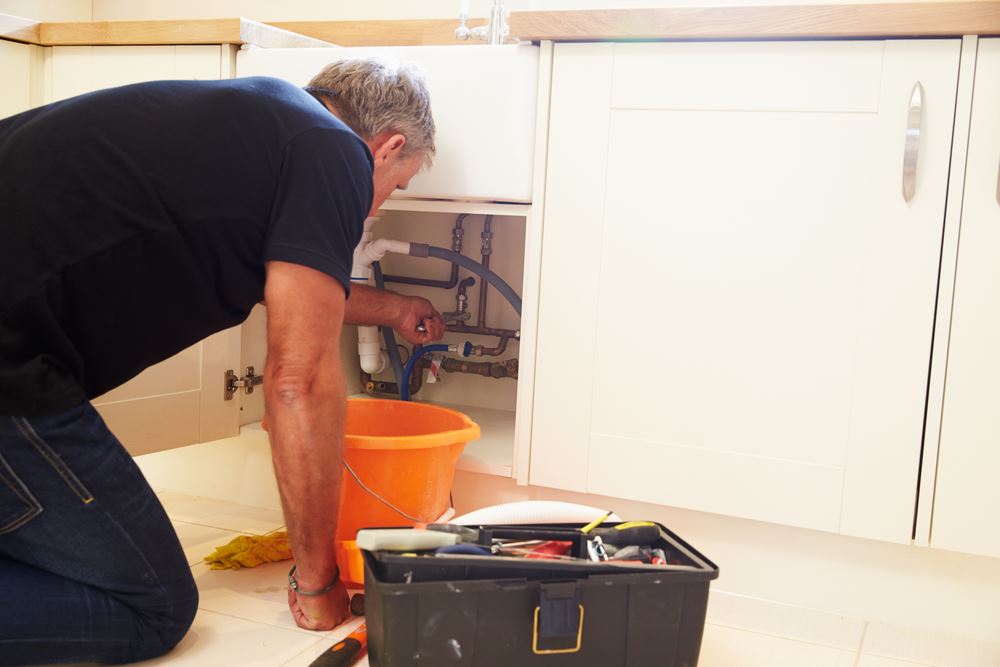Plumbing is integral to our daily lives, yet it’s often shrouded in misconceptions and myths. That’s why it’s crucial to gain a deeper understanding of how our plumbing systems truly work, and Service by Scott is here to guide you through the process. As a family-owned and operated full-service plumbing and maintenance company in Woodville, Texas, with over 30 years of dedicated service, we’re committed to debunking common plumbing myths and ensuring a smoothly functioning plumbing system for our customers.
This guide will debunk 10 common plumbing myths, empowering you to make informed decisions and maintain a smoothly functioning plumbing system. Whether you’re dealing with leaky faucets, clogged drains, or water heater problems, we’ll uncover the truth behind these misconceptions and provide practical advice for addressing plumbing issues effectively.
Join us as we explore the world of plumbing myths, unraveling the truth one misconception at a time. With Service by Scott by your side, you can trust that you’re in good hands. By the end of this journey, you’ll be equipped with the knowledge and insights needed to keep your plumbing system in optimal condition and avoid falling victim to common plumbing myths.

Myth 1: Leaky Faucets are Harmless
Leaky faucets are often dismissed as minor annoyances, but the truth is, they can lead to significant issues if left unaddressed. Contrary to popular belief, a dripping faucet isn’t just wasting water—it’s also wasting your hard-earned money and potentially causing damage to your plumbing system.
The causes of leaky faucets can vary, from worn-out washers and seals to mineral buildup within the faucet mechanism. Regardless of the underlying cause, ignoring a leaky faucet can result in higher water bills, water damage to fixtures and surrounding areas, and even structural damage to your home over time.
Fortunately, fixing a leaky faucet is usually a straightforward task that can be tackled by homeowners with basic DIY skills or by a professional plumber such as Service by Scott. By addressing the issue promptly, you can prevent further damage, conserve water, and save money in the long run. So, don’t let a leaky faucet go unchecked—take action today to keep your plumbing system in top condition.
Myth 2: Flushable Wipes are Safe for Plumbing Systems
It’s a common belief that flushable wipes are safe to dispose of down the toilet, but the reality is far from it. While these wipes may be marketed as “flushable,” they pose a significant risk to your plumbing system and the overall health of your sewer lines.
The truth is, unlike toilet paper, flushable wipes do not break down as easily once they’re flushed. Instead, they can accumulate in your pipes, leading to clogs and blockages over time. These blockages can cause backups in your sewer lines, resulting in costly repairs and potential damage to your home.
To protect your plumbing system, it’s essential to avoid flushing any wipes down the toilet. Instead, dispose of them in the trash to prevent clogs and maintain the smooth operation of your plumbing. By debunking this myth and adopting proper disposal practices, you can safeguard your plumbing system and avoid unnecessary headaches in the future.

Myth 3: Lemon Peels Clean Garbage Disposals
It’s a widely believed myth that tossing lemon peels down your garbage disposal will effectively clean and freshen it. While the acidic nature of lemons may give off a pleasant scent, using them to clean your disposal can do more harm than good.
In reality, lemon peels can cause damage to the blades and motor of your garbage disposal. The tough, fibrous texture of the peels can wrap around the blades, leading to jamming and reduced functionality over time. Additionally, the high concentration of citric acid in lemon peels can corrode the metal components of your disposal, further exacerbating the problem.
Instead of relying on lemon peels for cleaning, opt for safer and more effective methods. Regularly flushing your garbage disposal with cold water while it’s running can help remove food debris and prevent odors. You can also use a mixture of baking soda and vinegar to freshen the disposal and break down any lingering residue.
By debunking the myth of lemon peels as a cleaning solution for garbage disposals, you can avoid potential damage and ensure the longevity of your kitchen appliance.
Myth 4: Plumbing Fixtures Don’t Need Regular Maintenance
It’s often thought that once installed, plumbing fixtures require no further attention or upkeep. However, neglecting regular maintenance can lead to a host of issues down the line, ranging from minor inconveniences to costly repairs.
Just like any other part of your home, plumbing fixtures benefit from regular maintenance to ensure they function optimally. Over time, wear and tear can occur, leading to leaks, corrosion, and decreased efficiency. By proactively maintaining your plumbing fixtures, you can identify and address potential problems before they escalate into larger issues.
Regular maintenance tasks for plumbing fixtures may include checking for leaks, cleaning aerators and showerheads, inspecting seals and connections, and testing water pressure. By incorporating these tasks into your household maintenance routine, you can extend the lifespan of your plumbing fixtures and prevent unexpected breakdowns.
Don’t fall for the myth that plumbing fixtures don’t need regular maintenance. By investing a little time and effort into upkeep, you can avoid costly repairs and ensure your plumbing system operates smoothly for years to come.
Myth 5: DIY Plumbing Repairs Always Save Money
It’s tempting to tackle plumbing repairs on your own to save money. However, the reality is that DIY plumbing repairs can often end up costing you more in the long run. While some minor issues may be within the realm of DIY capability, many plumbing problems require professional expertise to address effectively.
One of the biggest risks of DIY plumbing repairs is the potential for mistakes. A small error during a repair can quickly escalate into a major problem, leading to water damage, mold growth, and costly repairs. Additionally, DIY repairs may not address the root cause of the issue, resulting in recurring problems that require further attention.
Furthermore, attempting DIY repairs without the proper tools, knowledge, and experience can pose safety hazards. Working with pressurized water lines and handling plumbing fixtures can lead to injuries if not done correctly.
Instead of risking costly mistakes and potential safety hazards, it’s often more cost-effective to enlist the services of a professional plumber. A skilled plumber, such as those at Service by Scott, can accurately diagnose the problem, provide effective solutions, and ensure the repair is done correctly the first time.
While it may seem like a money-saving move initially, the truth is that DIY plumbing repairs can end up costing you more in the long term. By entrusting your plumbing needs to a professional, you can save yourself time, money, and unnecessary stress in the process.

Myth 6: All Water Heater Issues Require Replacement
It’s a common misconception that encountering any issue with your water heater automatically means it’s time for a replacement. While water heater problems can be concerning, they don’t always necessitate a complete overhaul of your system.
Many water heater issues can be resolved through repairs or simple maintenance tasks. For example, issues such as fluctuating water temperatures, unusual noises, or minor leaks may only require adjustments or part replacements to restore your water heater to proper functioning.
Before concluding that your water heater needs replacement, it’s crucial to have the issue assessed by a qualified plumber. A professional evaluation can determine the root cause of the problem and the most appropriate course of action. In many cases, repairs can be performed quickly and affordably, extending the lifespan of your water heater and saving you the expense of a premature replacement.
Service by Scott, your trusted plumbing partner, can assist with diagnosing and resolving water heater issues efficiently and effectively. With our expertise, we can help you navigate water heater problems and find the most cost-effective solution for your needs.
Myth 7: Chemical Drain Cleaners Are the Best Solution for Clogs
It’s a common belief that pouring chemical drain cleaners down a clogged drain is the quickest and most effective way to clear the obstruction. However, while chemical drain cleaners may provide a temporary fix, they often come with a host of drawbacks and can cause more harm than good in the long run.
Chemical drain cleaners contain harsh ingredients that can corrode your pipes and damage your plumbing system over time. These chemicals can eat away at the inner lining of your pipes, leading to leaks, cracks, and weakened structural integrity. Additionally, the fumes emitted by these cleaners can harm your health and the environment.
Furthermore, chemical drain cleaners are not always effective at completely clearing clogs. In many cases, they only partially dissolve the blockage, allowing it to reform and cause further issues. This can result in repeated applications of the chemical drain cleaner, leading to additional expenses and potential damage to your pipes.
Instead of relying on chemical drain cleaners, consider using safer and more effective alternatives. Mechanical methods such as plungers, drain snakes, or augers can often provide better results without the risk of damaging your plumbing system.
By debunking the myth that chemical drain cleaners are the best solution for clogs, you can protect your plumbing system and avoid unnecessary expenses. Trusting in safer and more sustainable alternatives can help you maintain a healthy and functional plumbing system for years to come.
Myth 8: Pipes Only Freeze If the Heat Is Off
Many believe that pipes only freeze when the heat in a building is turned off. While low temperatures certainly increase the risk of frozen pipes, the reality is that pipes can freeze even when the heating system is operational.
In colder climates or during periods of extreme cold weather, pipes located in unheated or poorly insulated areas of a building are particularly susceptible to freezing. This includes pipes in basements, crawl spaces, attics, and exterior walls. Additionally, pipes located near exterior openings, such as windows and doors, are at higher risk of freezing due to exposure to cold drafts.
Even in heated buildings, pipes can freeze if the heating system malfunctions or if there are gaps or leaks in the building envelope that allow cold air to infiltrate. Inadequate insulation or insufficient heating in certain areas of a building can also contribute to the risk of frozen pipes.
To prevent frozen pipes, it’s essential to take proactive measures regardless of whether the heating system is on or off. This includes insulating exposed pipes, sealing gaps and cracks in the building envelope, and ensuring adequate heating and ventilation in all areas of the building. During periods of extremely cold weather, it’s also advisable to allow faucets to drip slowly and to keep cabinet doors open to allow warm air to circulate pipes.
By dispelling the myth that pipes only freeze when the heat is off, you can take the necessary precautions to protect your plumbing system and avoid the costly consequences of frozen pipes. With proper insulation, maintenance, and awareness of potential risks, you can protect your pipes and ensure they remain functional even during the coldest winter months.

Myth 9: Plumbing Problems Can Wait Until Later
It’s a tempting thought to put off addressing plumbing issues, especially when they seem minor or manageable at the moment. However, the truth is that delaying plumbing repairs can lead to more significant problems down the line and result in costly repairs or even potential damage to your property.
Plumbing problems, no matter how small they may seem, tend to escalate if left unattended. A leaking faucet, for example, may start as a minor annoyance, but over time, it can lead to water wastage, higher utility bills, and even structural damage to your home from water seepage.
Additionally, some plumbing issues may indicate more serious underlying problems that require immediate attention. For instance, a slow-draining sink could be a sign of a clog further down the line, or low water pressure could indicate a leak or other issue within your plumbing system.
By postponing plumbing repairs, you’re essentially gambling with the integrity of your plumbing system and risking more extensive damage and costly repairs in the future. It’s always best to address plumbing problems promptly, no matter how insignificant they appear initially.
Service by Scott understands the urgency of plumbing issues and offers prompt and reliable service to address your plumbing needs efficiently. Don’t wait until later to tackle plumbing problems—trust Service by Scott to provide the expert assistance you need to keep your plumbing system in top condition.
Myth 10: Any Plumber Can Handle Your Issues
It’s a common myth that all plumbers are equal and capable of handling any plumbing issue that arises. While there are certainly many skilled and qualified plumbers out there, not all of them have the expertise or experience to effectively address every plumbing problem.
Plumbing is a diverse and complex field, with different specialties and areas of expertise. A plumber who specializes in residential plumbing may not necessarily have the knowledge or equipment to handle commercial or industrial-scale plumbing systems. Similarly, certain plumbing issues, such as intricate pipe installations or advanced leak detection, may require specialized training and equipment to resolve.
Furthermore, the quality of workmanship can vary greatly among plumbers, and not all plumbers adhere to the same standards of professionalism and customer service. Hiring the wrong plumber for the job can result in subpar work, unnecessary delays, and ultimately, more headaches and expenses for you as the customer.
When it comes to addressing your plumbing issues, it’s essential to choose a plumber who is not only qualified and experienced but also reputable and reliable. Service by Scott prides itself on its team of skilled and knowledgeable plumbers who are equipped to handle a wide range of plumbing issues, from residential repairs to commercial installations. With Service by Scott, you can trust that your plumbing needs will be addressed promptly and effectively by professionals who prioritize quality and customer satisfaction. Don’t fall for the myth that any plumber can handle your issues—choose Service by Scott for expert plumbing solutions you can count on.
Conclusion: Debunking Common Plumbing Myths
In navigating the world of plumbing myths, we’ve uncovered truths that can save you time, money, and frustration. From debunking the misconception that leaky faucets are harmless to dispelling the myth that any plumber can handle your issues, our journey has shed light on these plumbing myths and provided practical insights for maintaining a smoothly functioning plumbing system.
Proactive maintenance, informed decision-making, and the expertise of a trusted plumbing professional are essential for safeguarding your plumbing system and avoiding unnecessary headaches. By addressing plumbing issues promptly, seeking professional assistance when needed, and adopting proper maintenance practices, you can ensure the longevity and efficiency of your plumbing system for years to come.
At Service by Scott, we’re committed to providing reliable plumbing services to our customers in Woodville, Texas, and beyond. Whether you’re dealing with a leaky faucet, a clogged drain, or a malfunctioning water heater, our team of skilled plumbers is here to help. Don’t wait until plumbing problems escalate—contact Service by Scott today for prompt and reliable plumbing solutions you can trust.
FAQs
Are DIY plumbing repairs safe?
DIY plumbing repairs can be risky, especially if you lack experience or knowledge. Minor tasks like unclogging drains may be safe to attempt, but for complex issues or anything involving gas lines, it’s best to leave it to a professional plumber.
How can I prevent clogs in my drains?
To prevent clogs, avoid putting grease, food scraps, and non-biodegradable items down your drains. Use drain strainers to catch hair and debris, and periodically flush drains with hot water and vinegar to remove buildup.
Is it true that flushable wipes are safe for plumbing?
Despite being labeled as “flushable,” flushable wipes can still cause clogs and damage to plumbing systems. It’s best to dispose of them in the trash to avoid potential issues with your plumbing.
What are the signs that my water heater needs repair?
Signs of water heater issues include lukewarm water, unusual noises, leaks, and rust-colored water. If you notice any of these signs, it’s advisable to have your water heater inspected by a professional plumber.
How often should I schedule plumbing maintenance?
It’s recommended to schedule plumbing maintenance at least once a year to catch any potential issues early and keep your plumbing system in top condition. However, frequency may vary depending on the age and condition of your plumbing system.

